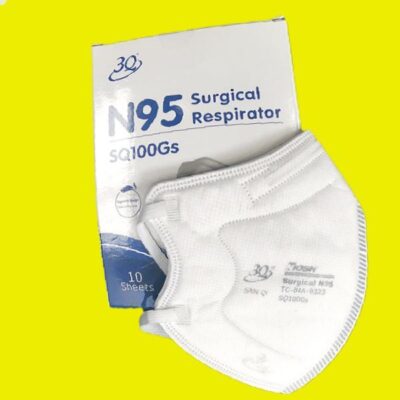Introduction:
In the fast-paced and dynamic environment of industrial settings, the health and safety of workers stand as paramount priorities. Among the tools and equipment designed to protect workers, the N95 mask has proven to be a crucial asset, safeguarding the respiratory well-being of factory workers. This article explores the indispensable role of N95 masks in ensuring the safety and health of those who keep the wheels of industry turning.
Understanding the N95 Mask in Industrial Context:
The N95 mask, renowned for its ability to filter out 95% of airborne particles, has become a linchpin in occupational safety, especially in factory settings. Engineered to protect against inhaling hazardous particles, these masks have found widespread application among factory workers exposed to various airborne contaminants.
Applications in Factory Work:
- Airborne Particle Protection: In environments where dust, particulate matter, and microorganisms are prevalent, factory workers benefit immensely from the high-filtration capabilities of N95 masks. These masks act as a reliable barrier, preventing inhalation of harmful particles that could compromise respiratory health.
- Metalworking and Welding: Factory settings often involve metalworking and welding processes, releasing fumes and particles that pose respiratory risks. N95 masks are indispensable for workers engaged in these activities, providing an effective defense against inhaling metal particles and fumes.
- Chemical Handling: Factories dealing with chemicals or hazardous substances necessitate robust protective measures. N95 masks serve as a frontline defense, offering workers a reliable shield against inhaling harmful chemical vapors and particles during various manufacturing processes.
- Woodworking and Carpentry: Woodworking and carpentry entail the generation of wood dust and other airborne particles. N95 masks are instrumental in ensuring the respiratory well-being of workers engaged in these activities, preventing the inhalation of wood dust and its potential health risks.
- Protection Against Respiratory Infections: In light of health concerns, especially in times of pandemics, N95 masks offer an added layer of protection against respiratory infections. Their effectiveness in filtering out airborne pathogens makes them an essential tool for maintaining a healthy workforce.
Benefits of N95 Masks for Factory Workers:
- Reduced Respiratory Risks: N95 masks significantly reduce the risk of respiratory issues by providing a robust barrier against airborne contaminants, ensuring a safer working environment for factory personnel.
- Increased Productivity: By safeguarding the health of workers, N95 masks contribute to increased productivity. Healthy employees are more likely to perform optimally, resulting in a more efficient and effective manufacturing process.
- Compliance with Safety Standards: Incorporating N95 masks into the workplace demonstrates a commitment to safety standards and the well-being of the workforce. This not only meets regulatory requirements but also fosters a culture of responsibility and care within the industrial setting.
Conclusion:
N95 masks have become indispensable guardians of the shop floor, playing a vital role in protecting the respiratory health of factory workers. As industries continue to evolve, prioritizing the safety and well-being of those at the forefront becomes imperative. By embracing the protective capabilities of N95 masks, factories not only ensure compliance with safety standards but also invest in the health and productivity of their most valuable asset—their workforce.



